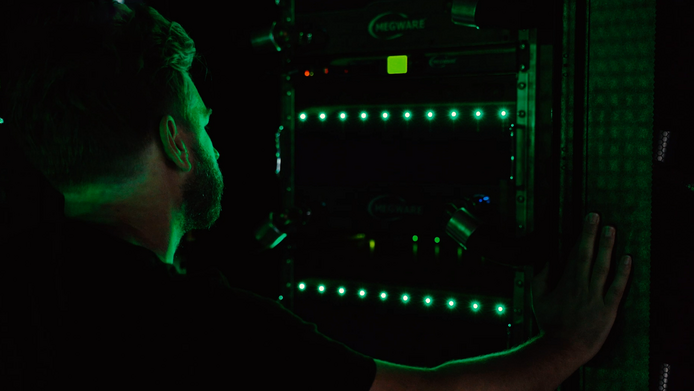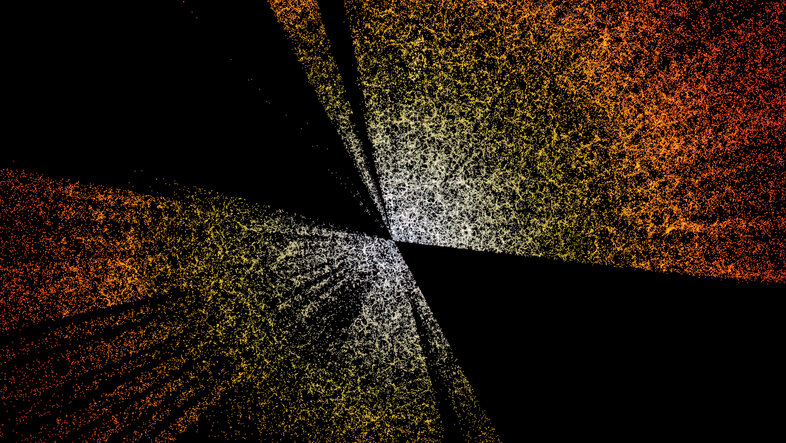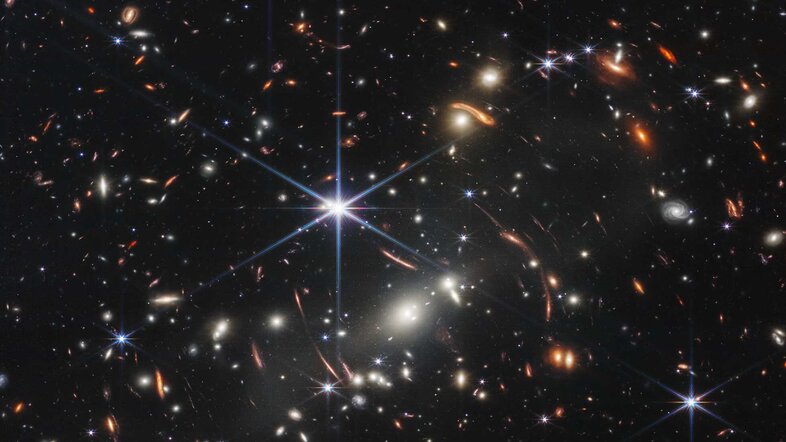After the Big Bang …
Is anything more fascinating than the very early universe with its new born stars and galaxies? Not much, if you ask astrophysicist Oliver Hahn. The young professor at the University of Vienna combines his expertise in cosmology with data science to understand how the cosmic structure that surrounds us evolved after the Big Bang.
Hahn's data-driven simulations explain phenomena that are far beyond common imagination: How dark matter collapses and forms the seeds of galaxies; how the large-scale filamentary network of galaxies arises from the counteracting forces of the expansion of the universe and the pull of gravity; or how the largest collapsed objects in the universe – clusters of hundreds and thousands of galaxies – evolve.
Modelling the universe
The first thing that is associated with astrophysics are telescopes, "but not everyone in astrophysics really works with telescopes anymore", says Hahn, silencing the rumour flying around since his early career. Nowadays the modelling of the universe with computers is just as important: Therefore, Hahn and his team write programs that model the equations and describe the occurring physical processes. The researchers compare the outcomes from these simulations with the observations from high-tech telescopes located in South America or even floating in space.
"The fact that we can describe our universe and its formation mathematically and model it using supercomputers and clever algorithms is an immense cultural achievement," explains Hahn enthusiastically: "My research connects physical-mathematical description and astronomical observation and thereby also helps us to better understand our place in the cosmos."
New supercomputer for cutting-edge research
The Vienna Scientific Cluster-5 has a total computing power of 4.3 petaflop/s, or millions of billions of computing options per second. It is twice as fast as its predecessor for practical applications – even though it uses almost the same amount of energy. The new supercomputer is operated jointly by the five Austrian universities TU Vienna, University of Vienna, University of Natural Resources and Applied Life Sciences Vienna, TU Graz, University of Innsbruck and, most recently, Johannes Kepler University Linz. In the picture: Oliver Hahn at the supercomputer (© Magdalena Reichinger)

At a larger scale
In the video, Oliver Hahn describes himself as "a very visual person", who has always been fascinated by patterns in nature in general. "If you look at the very large scales, such as the universe, you see patterns that can be very similar to patterns on small scales: the network of roots of a tree, bubbles in foam, crack formation e.g. in dry soil, or lightnings going through the sky. Despite these being very different phenomena, their appearance is shaped by very similar equations."
His genuine curiosity about nature and our cosmos motivated him to study physics – first at the University of Tübingen and the University of Toronto, later as a PhD candidate at the ETH Zürich. Before coming to the University of Vienna in October 2020, Hahn was a professor at the Université de la Côte d’Azur in Nizza.
Dark matter and dark energy
The highlight of his research career so far has been the ERC Starting Grant awarded in 2015. In his ERC project, Hahn is employing radically improved methods for cosmological simulations in the context of dark matter and dark energy research. "The incredible amount and quality of upcoming multi-wavelength data will allow unprecedented measurements of the fundamental physics of our universe," says Hahn, "Confronting this data with accurate model predictions might allow us to shed light on the mystery of what exactly is the dark matter and dark energy that dominate the universe".
After a long day of cosmic questions
Finding solutions for new and exciting problems, exchanging ideas with other creative minds and travelling to new places is what Oliver Hahn likes most about being a researcher. When coming home after a long day of cosmic questions, he enjoys rooting himself with more earthly things, "cooking dinner, playing music, watching a movie or just reading a book," reveals Hahn smiling. (hm)


